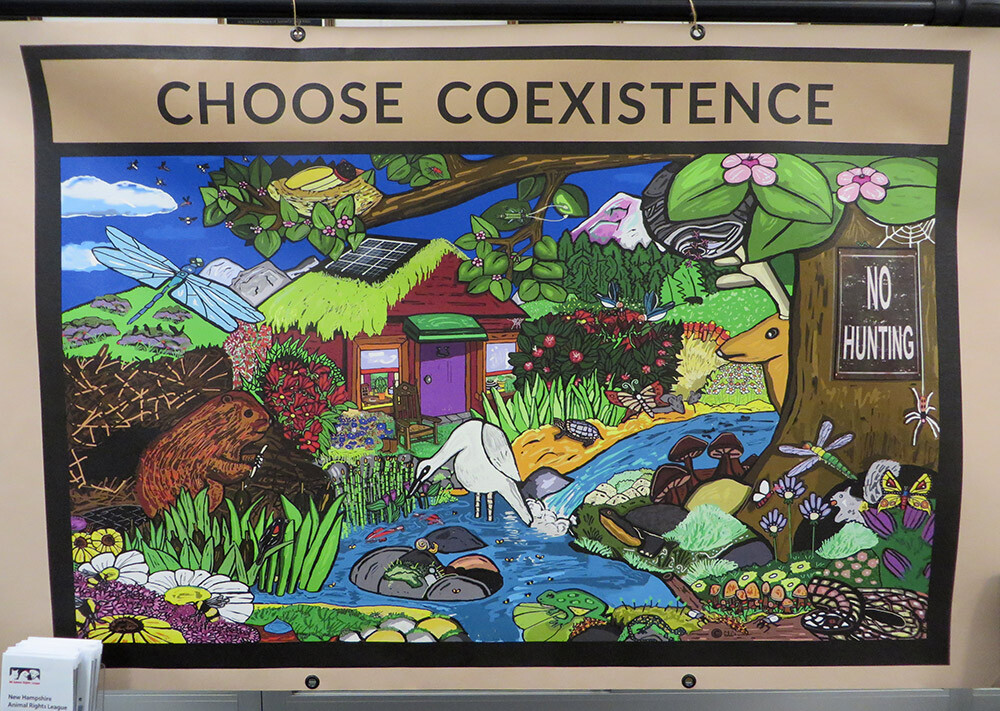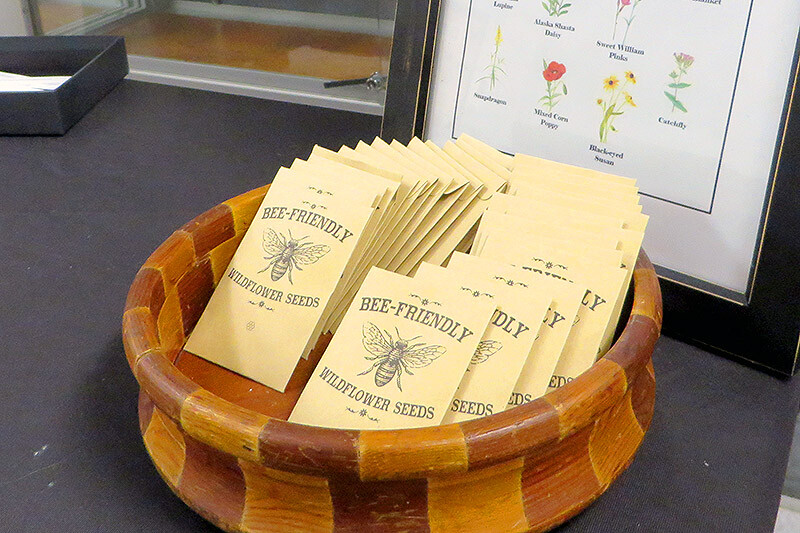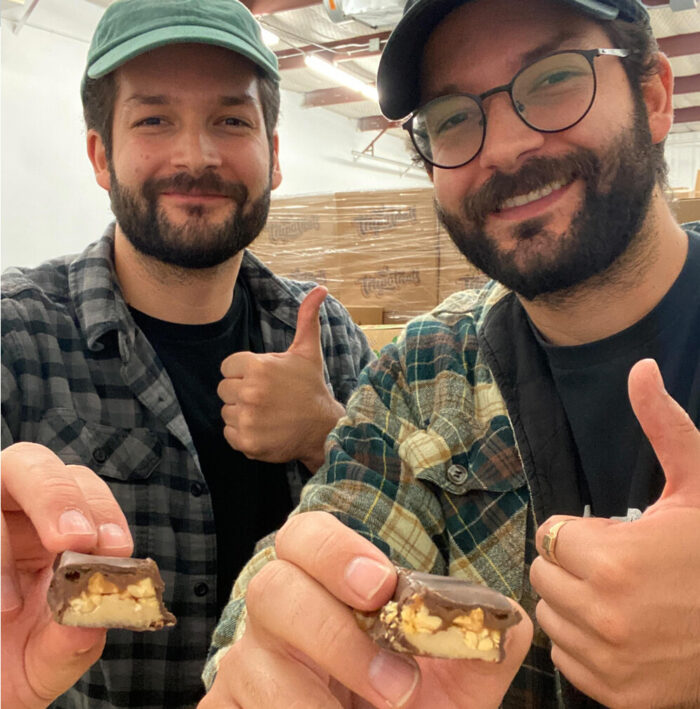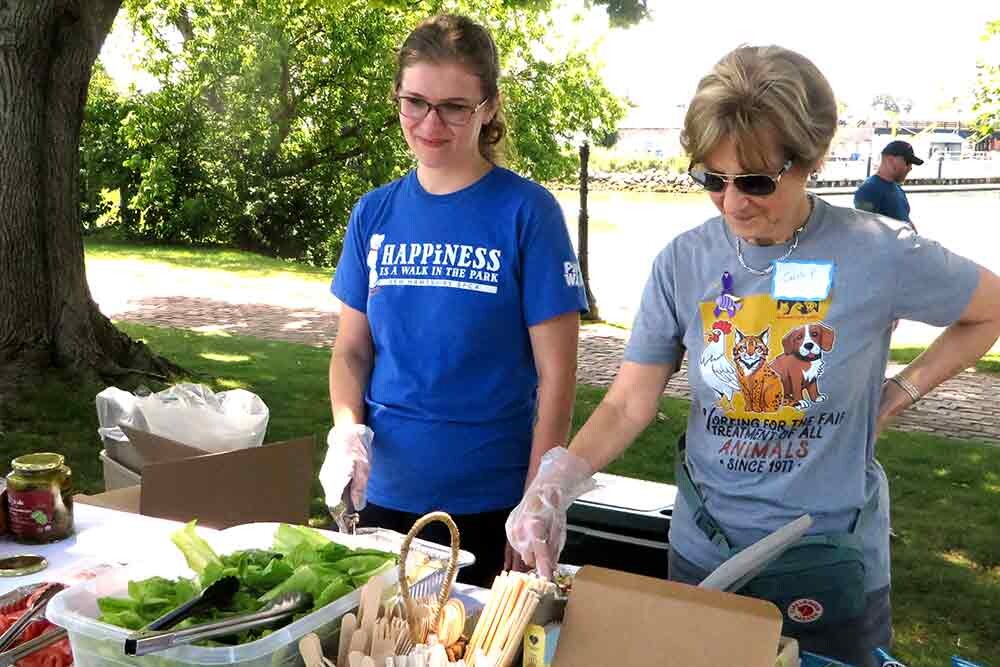Today NHARL had an exhibit at the Saving Special Places conference in Alton, NH to promote our various wildlife protection programs, coordinated by our volunteer Wildlife Programs Promoter, Caelin Graber.
The conference attracted professionals working in conservation, land trusts, and natural resources management, so it was a perfect networking opportunity for NHARL.

The colorful artwork drew visitors to our table and was the perfect starting point for talking about our wildlife programs and the philosophy of just leaving nature alone.

We also handed out postcards (shown below) with more information about our programs and copies of our Landowner’s Guide to Protecting Your Property.
New requests for free No Hunting signs are already coming in!
NHARL will be taking this “Choose Coexistence” exhibit on the road throughout the spring and summer to farmers’ markets and other events.























